8 Books Published by McFarland on AALBC — Book Cover Collage
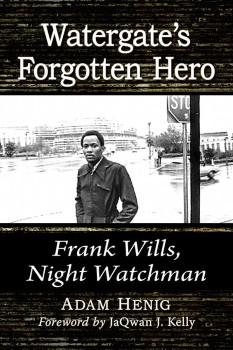 Watergate’s Forgotten Hero
Watergate’s Forgotten Hero
by Adam HenigMcFarland (May 26, 2021)
Read Detailed Book Description
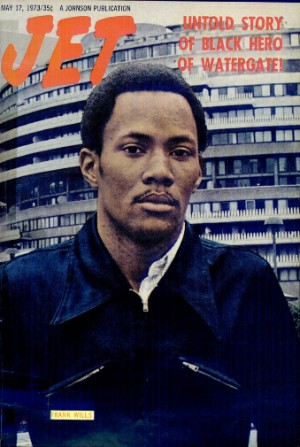 “Absorbing…compelling biography.”—Herb Boyd, author of Baldwin’s Harlem: A Biography of James Baldwin
“Absorbing…compelling biography.”—Herb Boyd, author of Baldwin’s Harlem: A Biography of James Baldwin
Nearly everyone who played a significant role in the Watergate saga has been scrutinized except one key participant: night watchman Frank Wills.
On the evening of June 17, 1972, in Washington DC, the twenty-four year-old security guard was on duty at the Watergate Office Building when he detected a break-in. A high school dropout with few hours of formal guard training, Wills alerted the police who caught five burglars, ultimately igniting a national political scandal that ended in the resignation of President Richard Nixon.
The only African American identified with the Watergate affair, Frank Wills enjoyed a brief moment in the limelight, but was unable to cope with his newfound fame, living the remainder of his life in obscurity and poverty.
Through exhaustive research and numerous interviews, the story of America’s most famous night watchman finally has been told.
Acknowledgments ix
Foreword by JaQwan J. Kelly 1
Preface 3
1. “Impenetrable” Security 7
2. The Break-In 10
3. Savannah 19
4. North Augusta 33
5. Job Corps 42
6. Watergate 50
7. Metro Police 59
8. The Caper 67
9. Opportunity Knocks 80
10. Delusions of Grandeur 90
11. From Bad to Worse 109
12. Downward Spiral 128
13. “I’ve Done My Work” 144
Epilogue 159
Chapter Notes 165
Bibliography 183
Index 195
 Rear Admiral Larry Chambers, USN: First African American to Command an Aircraft Carrier
Rear Admiral Larry Chambers, USN: First African American to Command an Aircraft Carrier
by Ric MurphyMcFarland (Dec 01, 2017)
Read Detailed Book Description
The first African-American aircraft carrier commander, Rear Admiral Lawrence Cleveland Chambers (1929- ) played a prominent role as captain of the USS†Midway during the Vietnam War. During the evacuation of Saigon—known as Operation Frequent Wind—he famously ordered several UH-1 helicopters pushed overboard to make room for an escaping South Vietnamese Air Force major to land his Cessna. Chambers, who had only commanded Midway for a few weeks, gave the order believing (wrongly) that he would be court-martialed for the $10 million loss. This biography covers his early life and military career, including his role in the desegregation of the U.S. Navy during a period racial strife.
 Women of Lebanon: Interviews with Champions for Peace
Women of Lebanon: Interviews with Champions for Peace
by Nelda LaTeefMcFarland (Oct 26, 2012)
Read Detailed Book Description
Despite sixteen years of civil war that left 150,000 dead, 425,000 injured, and nearly a million refugees within their own country, many Lebanese women successfully protected their national heritage and helped to restore order within their society. They formed schools and clinics, preserved historic ruins, and produced art that expressed the anguish and loss of their people.
In this book, 42 Lebanese women from arts and literature, education, government, law, social work, the media, business and medicine discuss the effects of war on their careers and humanitarian efforts, their personal lives and families. Many of these women lost relatives and homes. In spite of such devastation, their stories confirm the power of endurance and also convey the significance of women’s issues within Lebanon. These 42 poignant interviews with educated, successful women reveal their strength and the importance of culture and diversity within Lebanon.
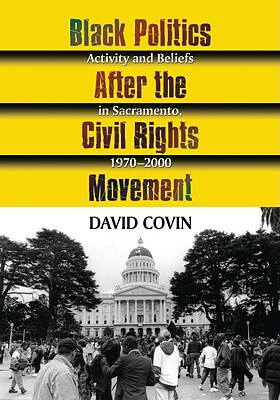 Black Politics After The Civil Rights Movement: Activity And Beliefs In Sacramento, 1970-2000
Black Politics After The Civil Rights Movement: Activity And Beliefs In Sacramento, 1970-2000
by David CovinMcFarland (May 13, 2009)
Read Detailed Book Description
This important study posits a new way of understanding how ordinary Black people used the 30 years following the civil rights movement to forge a new political reality for themselves and their country. While following national trends closely, it focuses particularly on the political environment of Sacramento, California, from 1970 to 2000. Having a racial profile that is remarkably similar to the nation’s demographics as a whole, Sacramento serves as a useful national proxy on the racial question. Unlike most studies of Black politics over the era, this text pays close attention to minor actors in the political process, yet places them within the context of the larger political world. We see, for example, the local effects of the War on Poverty, the Harold Washington mayoral campaigns, the Rainbow Coalition, the Million Man March, and the great increases in locally appointed and elected Black officials within the context of similar campaigns and movements nationwide.
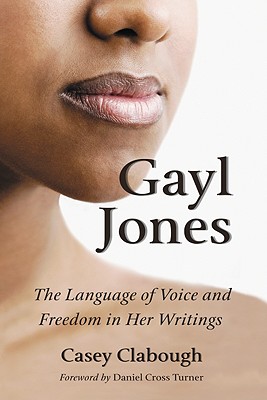 Gayl Jones: The Language Of Voice And Freedom In Her Writings
Gayl Jones: The Language Of Voice And Freedom In Her Writings
by Casey ClaboughMcFarland (Aug 15, 2008)
Read Detailed Book Description
Gayl Jones is dedicated to the art of "verbal authenticity," stemming from her identification with her African American heritage. Amid widespread critical praise as well as pointed attacks for her controversial first two novels, Jones has shown a constantly evolving cultural consciousness.
This first single-author study of Gayl Jones recovers the work of an under-examined yet immensely skillful contemporary writer. It offers a thorough examination of her technical innovations as well as her willingness to explore controversial subject matter.
The book addresses such crucial themes as Afrocentrism, diasporas, mythopoesis, post-colonialism and globalization, and offers close readings of the aesthetic and political interchanges within Jones’s fiction, drama, poetry, and criticism. Two interviews with Gayl Jones are included.
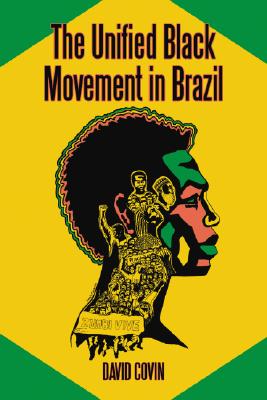 Unified Black Movement In Brazil, 1978-2002
Unified Black Movement In Brazil, 1978-2002
by David CovinMcFarland (Aug 22, 2006)
Read Detailed Book Description
Brazil in the late 1970s was a country of racial tension and inequality. During this time, a number of independent Black organizations sprang up from older roots, giving the black population a place to create, develop and share narratives about life in Brazil. Within these organizations, they developed a sense of racial consciousness that gave rise to the Movimento Negro Unificado (MNU) in 1979. The MNU, or Unified Black Movement, created an outlet for racial grievances and gave a voice to those previously unheard. This intensive historical study of Brazil’s Movimento Negro Unificado centers on the political effects and ramifications of the group. In order to present a complete picture of the MNU, it looks at the organization within four separate contexts: international, national, historical and human. Through this approach, the MNU is examined in relation to the African Diaspora, the European colonization of the Americas, the Atlantic Slave Trade, and the development of Brazil as an independent state. From a national perspective, the MNU is viewed amid other social organizations and cultural expressions. The result is a detailed study that admits the organization’s shortcomings but assesses them contextually, providing a more complete and nuanced understanding of the significance of the MNU’s problems and achievements. Appendices offer additional information such as the MNU Letter of Principles, the Constitution of the MNU, the preamble to the MNU Action Program and the MNU Hymn. A glossary is also included.
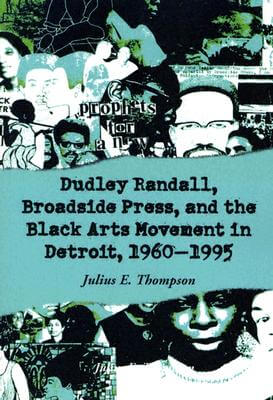 Dudley Randall, Broadside Press, And The Black Arts Movement In Detroit, 1960-1995
Dudley Randall, Broadside Press, And The Black Arts Movement In Detroit, 1960-1995
by Julius E. ThompsonMcFarland (Feb 01, 2005)
Read Detailed Book Description
In 1965 Dudley F. Randall founded the Broadside Press, a company devoted to publishing, distributing and promoting the works of black poets and writers. In so doing, he became a major player in the civil rights movement. Hundreds of black writers were given an outlet for their work and for their calls for equality and black identity. Though Broadside was established on a minimal budget, Randall’s unique skills made the press successful. He was trained as a librarian and had spent decades studying and writing poetry; most importantly, Randall was totally committed to the advancement of black literature. The famous and relatively unknown sought out Broadside, including such writers as Gwendolyn Brooks, Margaret Walker, Mae Jackson, Lance Jeffers, Etheridge Knight, Sonia Sanchez, Nikki Giovanni, Audre Lorde and Sterling D. Plumpp. His story is one of battling to promote black identity and equality through literature, and thus lifting the cultural lives of all Americans.
More about the Black Art’s Movement
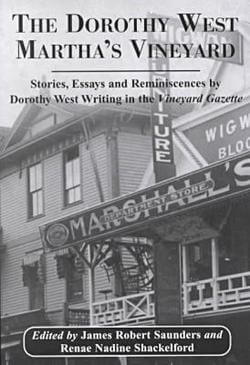 The Dorothy West Marthas Vineyard: Stories, Essays And Reminiscences By Dorothy West Writing In The Vineyard Gazette
The Dorothy West Marthas Vineyard: Stories, Essays And Reminiscences By Dorothy West Writing In The Vineyard Gazette
by Dorothy West, Renae Nadine Shackelford, and James Robert SaundersMcFarland (Jan 01, 2001)
Read Detailed Book Description
This book is a compilation of selected stories, essays, and reminiscences that Dorothy West wrote for the Vineyard Gazette from the 1960s to the early 1990s. In these entries, West retraces life on the island as she experienced it from 1908, when she was an infant, to 1993 when she wrote her final column. Born in 1907 in Boston, Dorothy West went on to develop into a prize-winning author by the time she was in her teens. The 1926 award she received in New York, and the lure of the city itself, inspired West to leave Boston and join what was then a fledgling literary movement that would evolve into the Harlem Renaissance. She circulated among what in essence was the black literary "royalty" of her times, of which she was a signal member.
